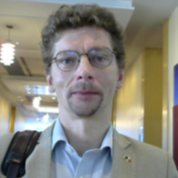Parallel Session 1.5
One Health on the Move: Nomadic Communities
1 February 2018
14:30 - 16:30 hrs.
| Venue | : | WORLD BALLROOM A |
BACKGROUND :
Fully dependent on their animals for their livelihood and income, pastoralists employ mobility as a key strategy to ensure the availability of pasture and water for their herds, thus increasing their resilience. While their movement allows them to overcome the vagaries of nature prevalent in the harsh environments they inhabit, their remoteness and often trans-boundary livelihoods have made it challenging to access services and engage in decision-making. Pastoralist are at the forefront of the human, livestock and wildlife interface. They are especially vulnerable to zoonotic diseases, because they live in close contact with their animals and often consume raw milk and meat. Furthermore changing environmental conditions also affect the availability of pasture for their animals, and in-turn affect their nutrition status.
The animal-human-environment sectors are interconnected and associated with the emergence of infectious diseases as Middle East Respiratory Syndrome (MERS). Multisectoral approaches such as One Health can help address the challenges at this interface by providing adapted vaccinations campaigns and veterinary services to pastoralists.
OBJECTIVES :
- To foster a deeper understanding of the health risks faced by mobile pastoral communities, and the challenges they encounter in accessing animal and human healthcare
- To share examples of interventions and policies that tackle pastoralists’ health issues at the animal-human-environment interface
- To promote the participation of pastoral communities in health policy decisions and sanitation campaigns
Moderator
Gregorio Velasco
Coordinator of the Pastoralist Knowledge Hub
Food and Agriculture Organization of the United Nations
Italy
Panelist

A. Lotfi Allal
Team Leader, Emergency Centre for Transboundary Animal Disease
Food and Agriculture Organization of the United Nations
Egypt

Baldomero Molina Flores
Specialist in Diagnosis, Surveillance and Control of Zoonotic Diseases
Pan American Health Organization
Brazil

Benon Asiimwe
Associate Professor
Makerere University
Uganda

María Teresa Alvarez
Pastoral representative
Redes Chaco y Pastorámericas
Argentina

Quentin Moreau
Country Representative
Agronomes et Vétérinaires sans frontières (AVSF)
Mongolia

Taghi Farvar
Chair
Shahsevan indigenous tribal confederacy
Iran
Documents

